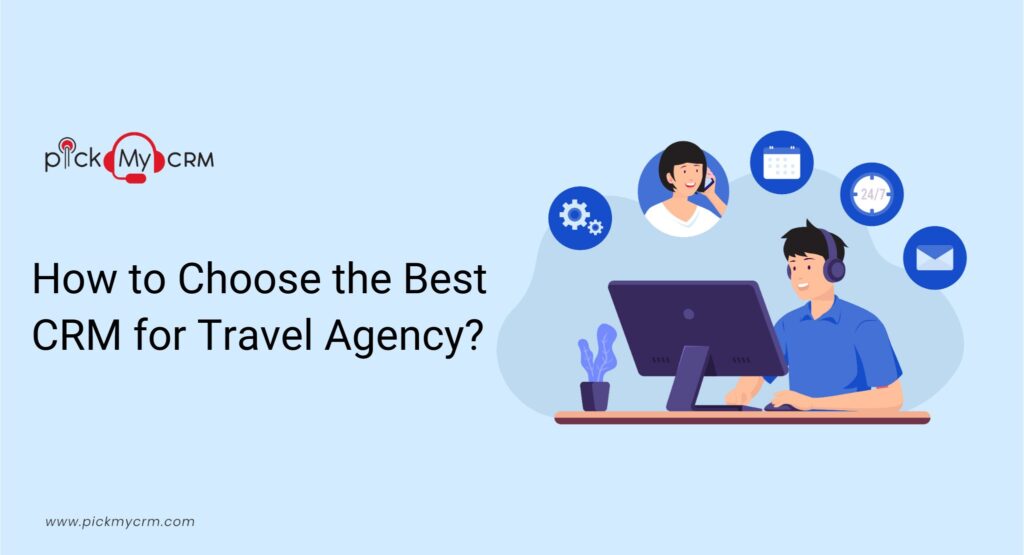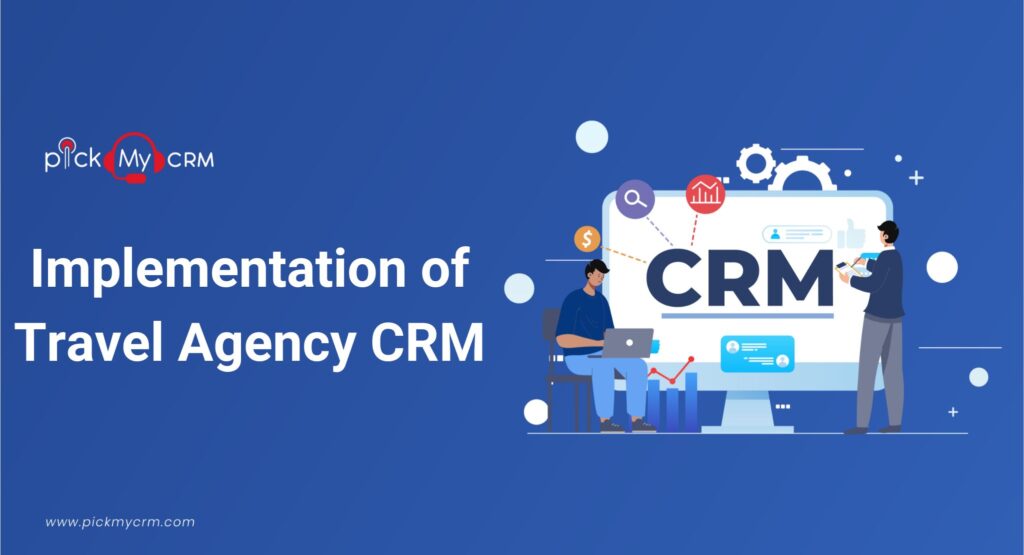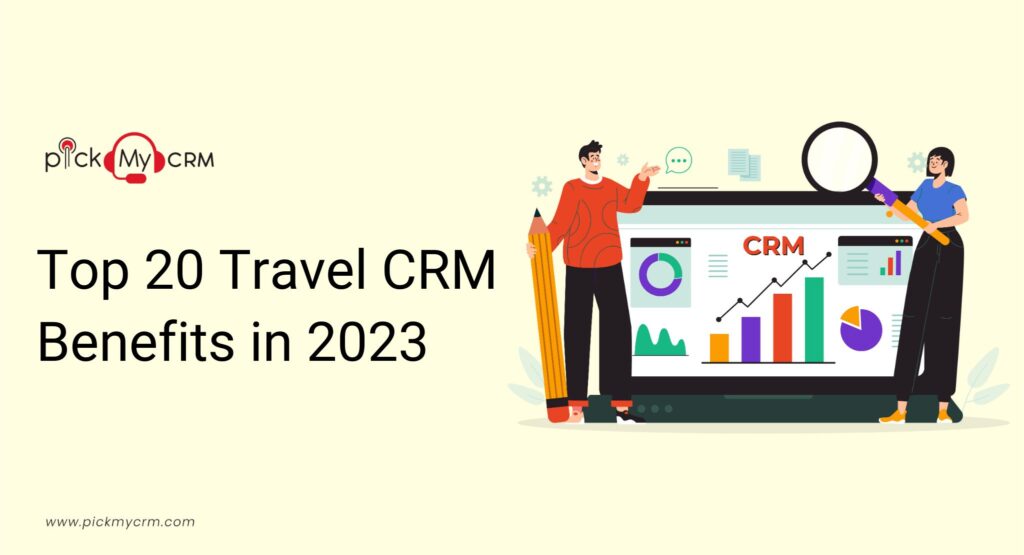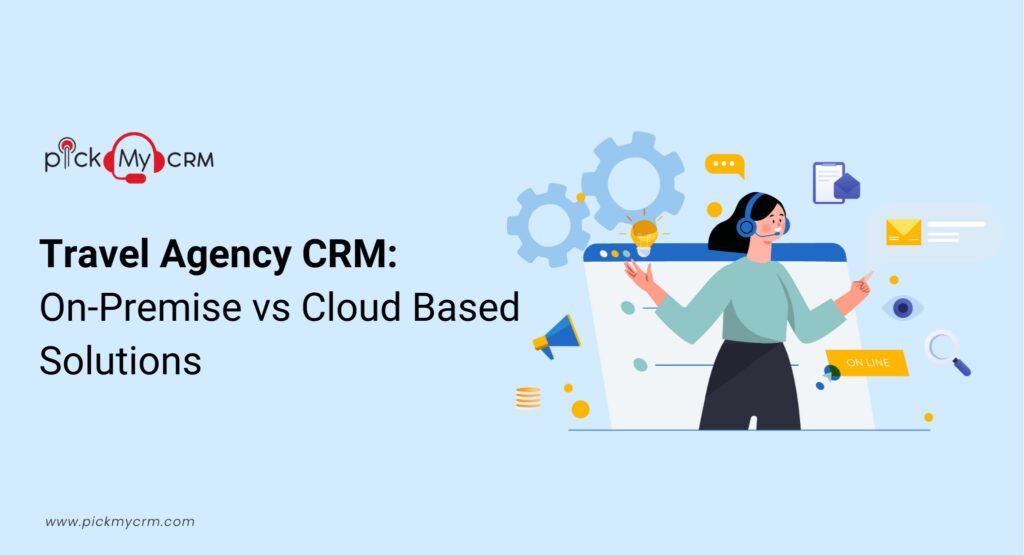How to Choose the Best CRM for Travel Agency: Streamlining Success

What is CRM in the Travel Industry?
In the travel industry, CRM refers to the strategic amalgamation of technology and processes aimed at managing interactions with potential and existing customers. These interactions encompass a wide spectrum, ranging from initial inquiries and itinerary customization to post-trip feedback and loyalty programs. By centralizing customer data, preferences, and engagement history, CRMs empower travel agencies to deliver tailored experiences, heighten customer satisfaction, and ultimately boost revenue.How to Choose the Perfect CRM for a Travel Agency:
- Evaluate Comprehensive Integration: Look for a CRM system that seamlessly integrates with other software your agency employs, such as booking engines, email marketing platforms, and analytics tools. A well-integrated system enhances data flow, minimizes manual entry, and optimizes workflow efficiency.
- Customizability is Key: Opt for a CRM that can be tailored to match your agency's unique processes and customer touchpoints. Customizability ensures that the system aligns with your agency's branding, workflows, and specific data capture requirements.
- Scalability and Growth Potential: Consider a CRM solution that can scale alongside your agency's growth. The travel industry is dynamic, and your CRM should have the capacity to accommodate increased data, users, and functionalities without compromising performance.
- User-Friendly Interface: A user-friendly interface is vital to ensure easy adoption by your team. An intuitive interface minimizes training time, reduces errors, and encourages active utilization of the CRM's capabilities.
- Mobile Accessibility: In the travel industry, agility is crucial. Opt for a CRM that offers robust mobile access, enabling your team to manage interactions, retrieve information, and provide assistance on the go.
- Data Security and Compliance: Prioritize a CRM solution that employs robust security measures to safeguard customer data. Additionally, ensure that the chosen CRM complies with relevant data protection regulations, such as GDPR.
Benefits of CRM in the Travel Industry:
Implementing a CRM system in a travel agency yields a cascade of advantages, including: 1. Enhanced Customer Insights: CRMs consolidate customer data, enabling agencies to understand preferences, behaviors, and purchase history, facilitating personalized offerings. 2. Efficient Lead Management: A CRM system streamlines lead nurturing, automating follow-ups and ensuring no potential lead slips through the cracks. 3. Tailored Marketing Campaigns: By segmenting customers based on their preferences, a CRM empowers agencies to create laser-focused marketing campaigns that resonate with specific target groups. 4. Smoother Collaboration: CRMs promote inter-departmental collaboration by providing a centralized platform for teams to access and update customer information in real-time. 5. Increased Customer Satisfaction: With comprehensive customer profiles at their fingertips, agents can offer timely, relevant, and insightful assistance, heightening customer satisfaction and loyalty.Best CRM for the Travel Industry:
When it comes to choosing the best CRM for a travel agency, several options stand out.- Salesforce: Renowned for its robustness, Salesforce offers a range of industry-specific features that can be tailored to travel agency needs.
- HubSpot: HubSpot's CRM boasts an easy-to-use interface and offers valuable marketing and sales tools alongside customer management features.
- TravelContact: Designed exclusively for the travel industry, TravelContact focuses on automating travel-specific tasks and facilitating customer communication.
- Insightly: This CRM offers advanced project management features alongside customer relationship management, making it suitable for agencies with complex itineraries.



